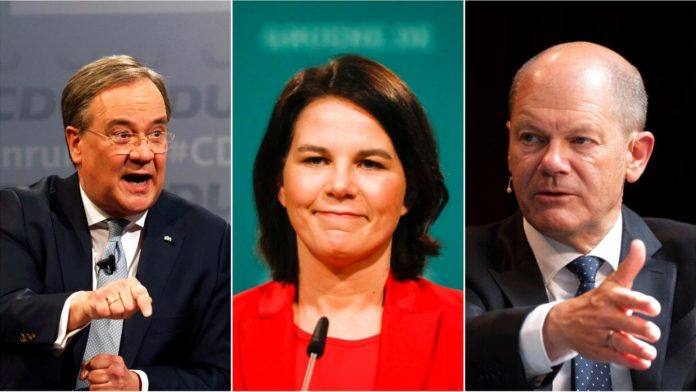In 2018, Chancellor of Germany Angela Merkel held a press conference where she told the world that she would “not be seeking any political post after [her] term ends.” Merkel, the first woman to ever hold the chancellorship, planned to step away from the political spotlight after the completion of her term. On September 26 of this year, the federal German elections were held. Each political party had some changes in the number of official seats held but the most noticeable was that of the Christian Democratic Union. Formerly backed by Merkel, the CDU saw a 32% decline in the number of seats won (246 → 197) from the 2017 elections. This gave the Social Democratic Party, the other major political party of Germany, room to narrowly win remaining seats, securing a total of 206 seats. In Germany, however, the winning party leader doesn’t automatically take the position of Chancellor. Although the SDP has won the majority of seats, their leader, Olaf Scholz, still has to form a coalition if he wishes for enough votes to assume the highly-coveted position. The narrow win the SDP saw plays into this post-election race, as CDU candidate Armin Laschet has enough traction to also form a coalition of his own and push himself into the position of Chancellor. This leaves the most influential and sought-after political position in Germany still being fought for, weeks after the general election has been held.
Both the CDU and SDP faced challenges and changes in leadership before this year’s election. For instance, in 2018, the CDU and its sister party, the SDP had a government crisis over immigration policies. Asylstreit, which translates into asylum dispute, was a result of then-CSU leader Horst Seehofer demanding Merkel, leader of the CDU, to turn away asylum-seekers at Germany’s borders. Merkel believed that this was a violation of the EU’s principle of freedom and movement which led to the CSU threatening Merkel with political instability. The final agreement that was reached contained the introduction of transitzentren, which are transit centers. It allowed for quicker deportation of asylum seekers, causing stability within the coalition again. As for the SDP, ever since losing against Merkel in 2005, the party has been slowly facing decline. In the 2017 election, the party won only 20% of the votes, a big difference between the 32% the CDU had won. Not only do the results of this year’s election show a shift in party leadership and values, but it also shows the shift in public opinion.
At a press conference earlier this year, the CDU announced its new slogan and values for the upcoming election. They believed that this new slogan, Deutschland gemeinsam machen, would better accommodate what they believe in and stand for. In a literal translation from German to English it means “make Germany together,” but it could also mean ”crafting Germany together.” For a party that can no longer depend on a single leader, such as Merkel, to bring them together, the new slogan captures the changes that the party faces in Merkel’s absence. The values that were discussed at the press conference included family, security, education, climate change, and the creation of jobs. The SDP has been solid with its campaign, highlighting ideas and values such as equality, climate change, gender equality, and economic stability. While the recent election has given Merkel’s former party a hit and the declining SDP control of the government, there is still lots of political uncertainty. Other parties are on the rise, pulling in record numbers and votes. There is also an increase in votes of various demographics. In fact, it is very likely there could be another change in leadership in future elections. But as we look at Germany’s most recent election, it is clear that Merkel’s power and influence will continue to shape Germany and its political standings.
